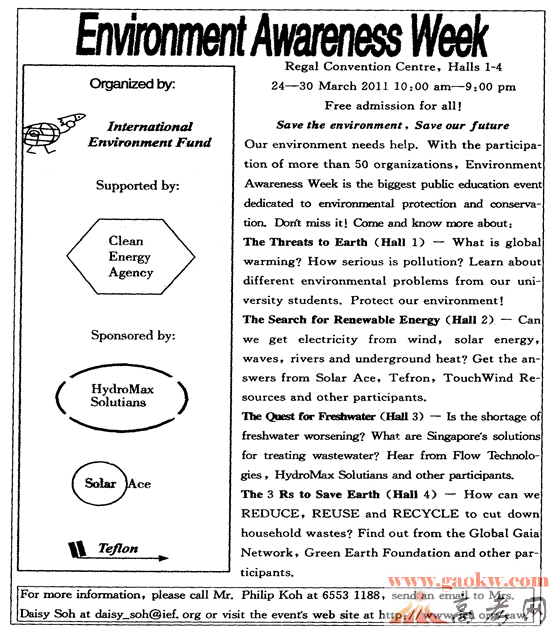江苏省扬州中学2014届高三上学期12月月考英语试题试卷(4)
来源:未知 发布时间:2013-12-28 13:29:32 整理:一品高考网
At the heart of Crabtree’s thinking is a simple idea. In the past, intelligence was critical for survival when our ancestors had to avoid dangerous animals and hunt for food. The difference of being smart or stupid is often life or death. However, after the spread of agriculture, when our ancestors began to live in dense farming communities, the need to keep their intelligence in peak condition gradually reduced.
This is not hard to understand. Most of the time, pressure is what keeps us going – you need the pressure from your teachers to finish your homework; the pressure of looking pretty prompts you to lose weight when summer comes. And the same is also true of our intelligence – if we think less, we become less smart.
These mutations(变异) are harmful to our intelligence and they were all developed in the past 3,000 years. The other evidence that Crabtree holds is in our genes. He found that among the 2,000 to 5,000 genes that we have that determine human intelligence, there are two or more mutations in each of us.
However, Crabtree’s theory has been criticized by some who say that early humans may have better hunting and surviving abilities, but people today have developed a more diverse intelligence. For example, spearing a tiger doesn’t necessarily require more brainpower than playing chess or writing a poem. Moreover, the power of modern education means a lot more people have the opportunity to learn nowadays.
“You wouldn’t get Stephen Hawking 2,000 years ago. He just wouldn’t exist,” Thomas Hills of the University of Warwick, UK, told Live Science. “But now we have people of his intellectual capacity doing things and making insights that we would never have achieved in our environment of evolutionary adaptation.”
60. What is Crabtree’s recent finding according to the article?
A. The Greeks from 1,000 BC could have been the smartest in human history.
B. Our ancient ancestors had no better surviving abilities than we do nowadays.
C. Humans have been getting steadily more intelligent since the invention of farming.
D. Mutations in genes that decide human intelligence have affected the development of intelligence.
61. According to Crabtree, ancient humans _______.
A. had much more genes that determine human intelligence
B. were forced to be smart due to natural selection pressures
C. relied more on group intelligence than individual intelligence
D. developed a diverse intelligence to adapt to the harsh realities
62. Some argue that Crabtree’s theory is false because they think _______.
A. people today are under much more pressure than early humans
B. it’s ridiculous to compare a hunter’s and a poet’s intelligence
C. modern education is far more advanced than ancient education
D. human intelligence nowadays is different from that of the distant past
63. What is Thomas Hills’ attitude toward Crabtree’s theory?
A. Supportive B. Unfavorable C. Worried D. Confused.
C

64. The main aim of Environment Awareness Week is to _____.
A. educate the public on protecting the environment
B. discuss global warming and other environmental problems
C. explain ways for producing freshwater to save the environment
D. learn about renewable energy sources that protect the environment
65. The organizer of the event is _____.
A. Global Gaia Network B. Clean Energy Agency
C. Green Earth Foundation D. International Environment Fund
66. Which of the following statements is NOT true of the event? ________
A. It will last a week and the halls will be open 11 hours a day.
B. You can send an email to Mrs. Daisy Soh for more information.
C. Each hall charges the same amount of money as the other.
D. Lectures in Hall 1 will be given by university students.
D
Picture a typical MBA lecture theatre twenty years ago. In it the majority of students will have conformed to the standard model of the time: male, middle class and Western. Walk into a class today, however, and you’ll get a completely different impression. For a start, you will now see plenty more women—the University of Pennsylvania’s Wharton School, for example, boasts that 40% of its new enrolment is female. You will also see a wide range of ethnic groups and nationals of practically every country.
It might be tempting, therefore, to think that the old barriers have been broken down and equal opportunity achieved. But, increasingly, this apparent diversity is becoming a mask for a new type of conformity. Behind the differences in sex, skin tones and mother tongues, there are common attitudes, expectations and ambitions which risk creating a set of clones among the business leaders of the future.
Diversity, it seems, has not helped to address fundamental weaknesses in business leadership. So what can be done to create more effective managers of the commercial world? According to Valerie Gauthier, associate dean at HEC Paris, the key lies in the process by which MBA programmes recruit their students. At the moment candidates are selected on a fairly narrow set of criteria such as prior academic and career performance, and analytical and problem solving abilities. This is then coupled to a school’s picture of what a diverse class should look like, with the result that passport, ethnic origin and sex can all become influencing factors. But schools rarely dig down to find out what really makes an applicant succeed, to create a class which also contains diversity of attitude and approach—arguably the only diversity that, in a business context, really matters.
相关信息
- 2019北京高考英语试题及答案
- 2019江苏高考英语试题及答案-真题试卷
- 2019年广东高考英语真题试卷及答案
- 2019年天津高考英语试题及答案-真题试卷
- 2019年浙江高考英语试题及答案(真题试卷
- 2019年高考全国卷Ⅲ英语试题及答案(真题
- 2019年高考全国卷II英语试题及答案(真题
- 2019年高考全国卷Ⅰ英语试题及答案-真题
- 2018恩施中考英语试题及答案
- 2018江西中考英语试题及答案(word文字版
- 2018陕西中考英语试题及答案(word文字版)
- 舟山2018年中考英语试题及答案
- 2018年安徽中考英语试题及答案(word版)
- 枣庄2018中考英语试题及答案
- 2018白银中考英语试题及答案(Word版)
- 聊城2018年中考英语试题及答案(word版)
- 江西2018年中考英语试题及答案(Word版)
- 2018年上海中考英语试题难吗?英语试卷评
- 2018年南京中考英语试题难吗?英语试卷评
- 2018年金华、丽水中考英语试题及答案(wo
Copyright © 2006 - 2018 www.gaokw.com Inc. All Rights Reserved 一品高考网版权所有 |
